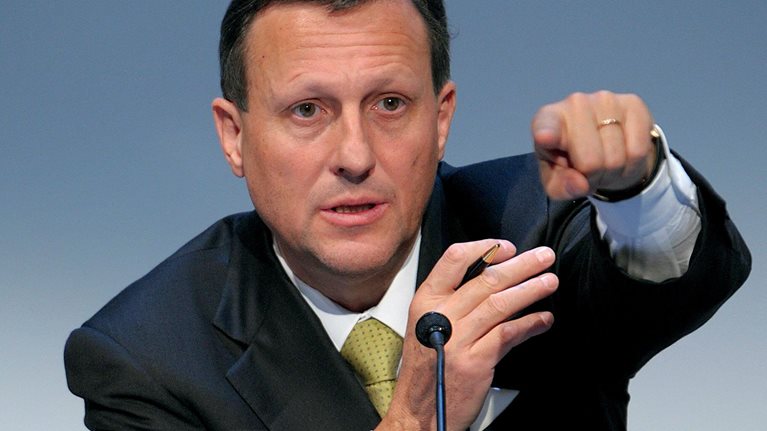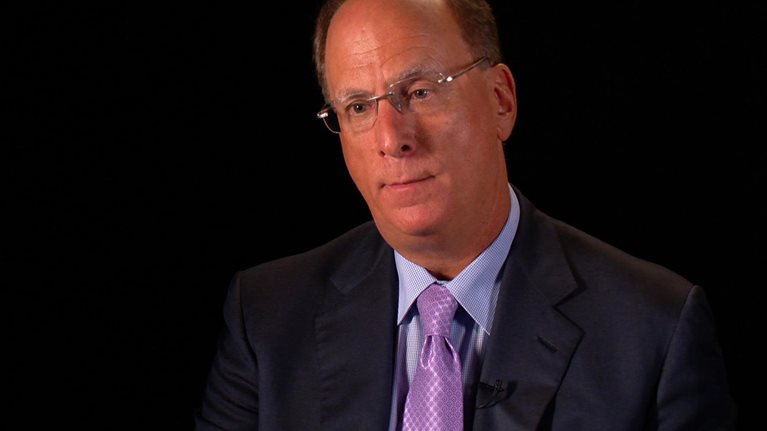Frédéric Oudéa is no stranger to crises. He assumed the role of chief executive officer of French banking giant Société Générale in 2008, following significant losses in the US market and a trading scandal that cost the bank nearly €5 billion. In response, Oudéa carried out a series of measures to strengthen the company and reposition it as a leading European bank. In August 2011, he moved swiftly to quell rumors about the bank’s liquidity as the Greek debt crisis washed across Europe. His tenure has also coincided with significant structural evolution in banking regulations, as well as questions about the future of the eurozone and the long-term profitability of banks. In this interview with McKinsey’s Rik Kirkland, Oudéa discusses leadership at a time of crisis, Société Générale’s vision for the long term, and the strategic importance of diversity.
McKinsey: Most CEOs take charge through a clear succession process. But you, in effect, had a battlefield promotion with no time to prepare. Describe what that was like.
Frédéric Oudéa: I had dealt with a lot of leadership challenges throughout my career and had 14 years with the bank, serving for some time as CFO. So, on the one hand, I was prepared to take on this responsibility; I felt I had no real choice but to say yes, given the extent of the crisis. But the big difference when you become CEO is that you are permanently exposed. Everyone is looking at you and expecting you to deliver a message. You can’t stand back. In my case, I benefited in the transition from several factors besides my experience: the strong support of the previous CEO, Daniel Bouton, who remained chairman as we went through the worst of the crisis; a great management team; and the fact that my fourth child had been born the day after the trading scandal broke, which helped me keep things in perspective.
McKinsey: What leadership lessons have you drawn from the recent crises facing Société Générale?
Frédéric Oudéa: The shock from the 2008 trading loss came early in the year, well ahead of the broader financial crisis. So it was a one-off, where we needed to deal quickly with a big surprise. Here the key was, first, at a personal level, to remain calm, manage your stress, and avoid creating useless turbulence by establishing a solid process to help the team organize themselves to make the right decisions at the right time. Beyond that was the need to project a strong sense of cohesion and confidence and to communicate clearly a few critical decisions, such as our ability to raise new equity. That sent a message that despite our large losses, we had the financial resources to put it behind us.
Dealing with that kind of sudden crisis, in turn, gave our management team confidence that we could successfully cope with any kind of difficult situation. It also reinforced for me, as a leader, the importance of having the courage to go on stage and expose yourself, despite considerable uncertainty and the lack of perfect information. If you are confident and believe in your message, the greater risk is to say nothing.
For example, in August 2011, as the eurozone sovereign-debt crisis was unfolding, we had just a few hours to respond to market rumors that our bank had suffered big losses. Here it was simply a matter of the CEO getting in front of the media to declare this was absolutely false. Later in September, with the crisis deepening, the concerns were less about Société Générale, than about the broader banking environment. But again, we decided it was important for me to get in front of the problem and communicate early how, since the summer, we had been decreasing our exposure to these sovereign-debt assets and had started deleveraging the bank. And thus, that our liquidity was sound.
By the way, while stressing this essential public role for a leader, I want to emphasize that no single individual can bear the full responsibility for managing a crisis. The person in charge must have the support of a strong team. You have to rely on your people and trust that they will deliver. And it’s a great comfort when you see that they’re able to do so.
McKinsey: So having steered your company through all this turbulence, what does the future look like now?
Frédéric Oudéa: The extreme scenarios of fear concerning the eurozone have vanished, and the economic environment has started to stabilize. In the banking industry, the task now is to address the deeper challenges to our business models, to refine those models, and to make them palatable to investors again. Doing this well doesn’t require the same speed of reaction, but rather a very clear long-term determination.
In fact, one of the lessons of adapting well to a brutal crisis and continuing to move forward in a world with a high and sustained degree of uncertainty is that a company needs to have sound long-term objectives. I often think of the analogy of a ship and its sailors using a beacon to guide them when the wind is churning and the rocks are all around. It became very clear to me that we at Société Générale needed a long-term vision that would remain unchanged, regardless of what happened around us—the eurozone crisis, volatility in the markets, changing regulations, political risk. I wanted to align us with a long-term vision that would make sense in any circumstance and make our people proud to be bankers.
McKinsey: Can you elaborate on your vision for Société Générale?
Frédéric Oudéa: Our overarching vision is to deliver growth with less risk. And to support this long-term vision, we have outlined four strategic themes as our priorities; these stand no matter what the economic scenario is. The first is client satisfaction. The second is operational efficiency, which includes our approach to risk and daily operations. The third theme is our people and our commitment to making Société Générale a firm where employees are happy to work. And the fourth focuses on communication to convey our long-term vision, both internally and externally.
McKinsey: Société Générale is a large organization. How have you rallied the firm around this vision?
Frédéric Oudéa: We have 154,000 employees around the world. Together, we have developed common objectives for each strategic theme. So, we all share the same objectives around client satisfaction, for example. We also launched a number of initiatives to support the vision, such as a corporate university for managers, a series of training sessions, and a social barometer to gather feedback. The objectives and initiatives were developed collectively. Each employee had the opportunity to use her or his individual talents to shape the vision and ensure it represented our diverse perspectives. And last, because we felt that the environment would remain challenging for a while, we needed a shared corporate value to sustain the vision.
McKinsey: Can you elaborate on this shared corporate value and how you settled on it?
Frédéric Oudéa: The process was completely open, so we had a number of different groups and managers present ideas. In the end, we settled on the concept of team spirit. And shortly after we decided, I received a note from a retired employee. With his note, he included a letter written in 1964 by the chairman of Société Générale. The chairman’s letter was a reflection on the first 100 years of the company. He concludes the letter by saying that the most distinctive feature of Société Générale’s corporate culture is its team spirit.
McKinsey: That seems like a strong affirmation that you had chosen the right corporate value.
Frédéric Oudéa: Exactly. What fascinated me was that 47 years later, using a completely different process and without any knowledge of this letter, we selected the very same value that seemed so distinctive at that earlier time. For me, that means that the culture of the firm—this team spirit—will sustain us through any crisis.
McKinsey: How has the long-term vision been received?
Frédéric Oudéa: Internally and externally, the response has been very positive. Because we are a service company, our principal differentiator is our people. I am very happy to see the progress our employees have made around client satisfaction. For example, the branches have decided to close for a half hour to an hour every week to discuss and monitor their progress on client satisfaction. The decision to close was a very difficult one, because obviously it meant less access for our clients. However, the branches are very pleased with the management benefit this time provides them. Some branches only have three or four employees, so they rarely, if ever, had time to meet as a team. In the end, I think this illustrates our people’s commitment to the vision, because their decision involved risk and they were able to see that the benefit outweighed that risk.
McKinsey: How do you stay connected with your teams?
Frédéric Oudéa: As we moved on from crisis-management mode, I have tried to reallocate my calendar to spend more time with our people. I travel to certain locations at least once and often twice a year. And I ensure that on every trip, I dedicate time to meet with clients, regulators, and our teams. Also, because sometimes prearranged visits do not reflect the day-to-day reality, I randomly visit the branches. When I work in Paris, I sometimes stop in on a Saturday to get a feel for how things are going. People often feel more comfortable speaking in an informal meeting.
McKinsey: To what extent has the pace and breadth of change shaped your view of leadership?
Frédéric Oudéa: I think a leader today must be conversant in many different topics and markets. Every market has its own political context and specificities. At the same time, it is important to remain humble and open, to project confidence but not pretend to know how the future will unfold. And I think diversity—in gender, race, nationality, and sexual orientation—is key to understanding those specificities. Leaders who make diversity a strategic priority and surround themselves with a diverse team of people can better respond to change and position their firms for success.

